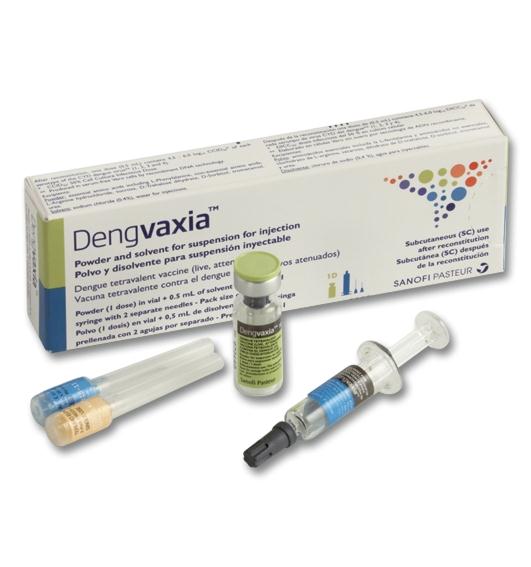Breaking
Senators express alarm over Dengvaxia; condemns DOH

Senators on Friday expressed alarm over the health dangers posed by Dengvaxia, a dengue vaccine the Department of Health (DOH) used in its school-based vaccination program, to patients who have not contracted dengue fever in the past. (Photo: MIMS)
MANILA, Philippines—Senators on Friday expressed alarm over the health dangers posed by Dengvaxia, a dengue vaccine the Department of Health (DOH) used in its school-based vaccination program, to patients who have not contracted dengue fever in the past.
Dengvaxia and its risks
In September, a data analysis entitled ‘Benefits and risks of the Sanofi-Pasteur dengue vaccine: Modeling optimal deployment’ revealed that while the medicine worked efficiently with patients who have been infected with dengue fever prior to vaccination, those who had not previously had the disease and were administered with Dengvaxia could develop more cases of severe disease.
“Based on up to six years of clinical data, the new analysis evaluated long-term safety and efficacy of Dengvaxia in people who had been infected with dengue prior to vaccination and those who had not. The analysis confirmed that Dengvaxia provides persistent protective benefit against dengue fever in those who had prior infection,” Dengvaxia developer Sanofi said in a public disclosure.
“For those not previously infected by dengue virus, however, the analysis found that in the longer term, more cases of severe disease could occur following vaccination upon a subsequent dengue infection,” it added.
Dengvaxia and the DOH
DOH in April 4, 2016, under the leadership of then-DOH chief Janette Garin, launched a school-based vaccination program for 1,077,623 nine year-old students in the National Capital Region, Central Luzon, and Calabarzon. In a press conference in March 28 of the same year, Garin said that Dengvaxia passed thorough clinical trials and was approved by the World Health Organization (WHO).
On July 18, new DOH chief Paulyn Ubial signed a resolution postponing the program. Ubial said that use of Dengvaxia has not been proven safe. However, in September 28, Ubial issued a Certificate of Exemption for Dengvaxia, paving way to its return.
From November 2016 until July 2017, Garin and Dengvaxia were scrutinized in Congress. The health risks of the vaccine and its procurement by DOH under the Benigno “Noynoy” Aquino III administration were among the issues tackled.
In between the House inquiry, Ubial on May 5 proclaimed that DOH will temporarily stop the vaccination program.
However, DOH Assistant Secretary Lyndon Lee Suy on November 7 said that it is unethical to stop the administration of the vaccine without completing three doses as doing so would “create more problems.”
Twenty-two days later, Sanofi released a report citing the serious health implications of Dengvaxia.
Reactions and call for action
Senator Nancy Binay on Friday was “deeply shocked” over Sanofi’s public disclosure, and saddened by DOH’s disregard of Department of Science and Technology’s warning over the use of the vaccine.
“The latest medical report issued by Sanofi is deeply shocking and disturbing especially to any parent whose children have received the vaccine,” she said.
“It is sad that the DOH ignored the warning of DOST about the issue of patient safety and research integrity of Dengvaxia. Safety should always be the paramount concern when it comes to any vaccination program,” she added.
Senate blue ribbon committee chair Richard Gordon echoed Binay’s statement over the warnings health experts gave to the government but were seemingly ignored.
“Before we conducted an investigation on the anomalous procurement of this vaccine, we talked to several health experts and they told us that they had already warned the government long before about the possible adverse effect of the new drug on individuals with no prior history of dengue,” Gordon said.
“With this admission by Sanofi, they have been proven right. The safety of the children vaccinated is paramount here,” he added.
Meanwhile, Senator Joel Villanueva called for accountability in the vaccine mess that could have a long-term effect to more than 733,000 children who had undergone the government’s vaccination program.
“We should hold the appropriate DOH officials responsible for haphazardly allowing the vaccine to be administered to students, without extensive due diligence on the effects of the drugs and without waiting for the results of comprehensive clinical trial,” he said. “Sanofi should also be made accountable for their haphazard release of the drugs without complete and proper clinical studies.”
“The DOH and the Department of Education should also closely monitor the kids that were vaccinated and ensure that proper medical support will be provided to them,” he added.
Senate Committee on Health chair Joseph Victor “JV” Ejercito said he intends to conduct a Senate inquiry on Dengvaxia with the Blue Ribbon Committee by January next year, where present and past Health secretaries Secretary Francisco Duque and Ubial, respectively, will be invited.
“As chair of the Senate Committee on Health, I intend to call for an investigation on the disturbing findings related to the dengue vaccine, Dengvaxia,” he said.
Health Secretary Duque on Friday announced the suspension of DOH’s vaccination program.
“In the light of this new analysis, the DOH (Department of Health) will place the dengue vaccination programme on hold while review and consultation is ongoing with experts, key stakeholders, and the WHO (World Health Organization),” he said.
The Food and Drug Administration will also halt the commercial sale of Dengvaxia in the country until Sanofi replaces its packaging with one that states a new warning.





















